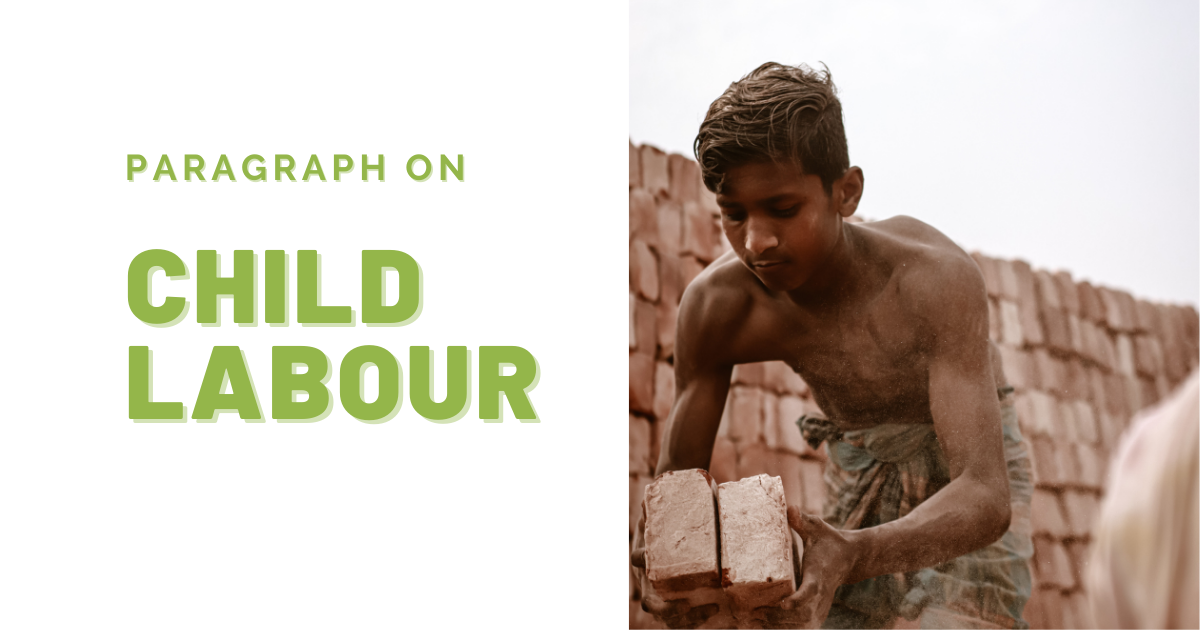Paragraph on Child Labour in 100 words
Child labour refers to the exploitation of children for economic or social gains. Children are made to work in hazardous and abusive conditions, often for long hours and with little or no pay. This practice is a violation of children’s rights and is a widespread problem in many parts of the world. Children are often forced into labour due to poverty, lack of education and awareness, and cultural practices. Child labour robs children of their childhood, education, and health, and can have long-term negative effects on their physical and mental development. Efforts are being made to combat child labour through legislation, education, and advocacy, but more needs to be done to ensure that children are protected from exploitation and abuse.
“The greatest legacy we can leave our children is happy memories.” – Og Mandino
Paragraph on Child Labour in India in 150 words
Child labour is a major issue in India, with an estimated 10.1 million children aged 5 to 14 working. Many of these children work in hazardous industries such as mining, manufacturing, and agriculture, where they are exposed to dangerous chemicals, machinery, and other hazards that can have long-term effects on their health and development. Poverty is a common cause of child labour, with families unable to afford basic necessities and children forced to work to support their families.
Despite government and non-governmental organisations’ efforts to combat child labour, the problem persists due to a lack of enforcement of laws and regulations, as well as a lack of public awareness and education. Many families are unaware of the risks of child labour and the importance of education. To protect vulnerable children in India, more needs to be done to raise awareness of the dangers of child labour, improve access to education and social welfare programmes, and strengthen enforcement mechanisms.
“Child labour perpetuates poverty, unemployment, illiteracy, population growth, and other social problems.” – Nobel Peace Prize Organization

